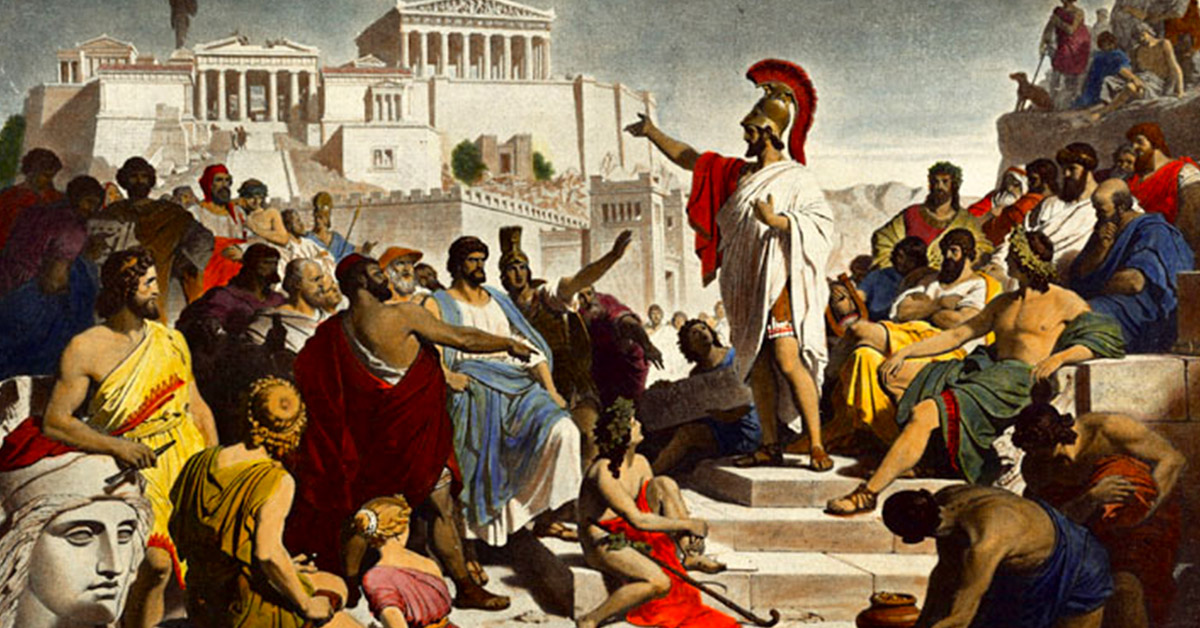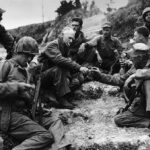
We continue our Great Strategists series with an episode on the man whose works serve as a foundation of strategic thought about war. Thucydides (c. 460-400 BC) was a Athenian general in the Peloponnesian War who, early on, recognized the War’s potential for transforming the political and social structures of the period. Thus, he set out to write a detailed account of the War from its onset. His aim was to understand how wars began, its impacts on combatant forces and societies, and to raise questions about the meaning of ‘just’ war. His first-person perspective adds color and power to his description of these events.
Much of the contemporary discourse about the nature and character of war is owed to Thucydides. However, the full History of the Peloponnesian War is not the easiest read and covers an extensive amount of ground. It is both too easy and dangerous to reduce the work to particular passages such as the powerful Melian Dialogue or reduce the work to bumper stickers like the “Thucydidean Trap.” A wider reading shows how strategic decisions made early in the war had significant effects in the short and long terms.
Helping tell Thucydides’ story and the impacts of his History are three faculty members from the U.S. Army War College — Drs. Tami Davis Biddle, Michael Neiberg, and Richard Lacquement. Each have a role in incorporating Thucydides’ works into the War College curriculum and offer their individual perspectives. UProfessor of Strategy and WAR ROOM Editor-in-Chief Jacqueline E. Whitt moderates.
[Thucydides] is one of the very few primary resources we have. If he hadn’t done this, we probably wouldn’t know very much about this period at all
Podcast: Download
Subscribe: Apple Podcasts | Spotify | Amazon Music | Android | Pandora | iHeartRadio | Blubrry | Podchaser | Podcast Index | TuneIn | Deezer | Youtube Music | RSS | Subscribe to A Better Peace: The War Room Podcast
Tami Davis Biddle is Professor of National Security Affairs at the U.S. Army War College.
Michael Neiberg is Chair of War Studies at the U.S. Army War College.
Richard Lacquement was Dean of the School of Strategic Landpower at the U.S. Army War College.
Jacqueline Whitt is Associate Professor of Strategy at the U.S. Army War College and the Editor-in-Chief of WAR ROOM.
The views expressed in this presentation are those of the speakers and do not necessarily reflect those of the U.S. Army War College, U.S. Army, or Department of Defense.
Image: Depiction of Pericles’ Funeral Oration by Phillip Foltz, c. 1877, via Wikimedia Commons, public domain





I did enjoy the discussion, and appreciate that the thoughts from 2400 years ago are still considered relevant today. However, a few quotes might have been useful; I doubt all the War Room subscribers have read Thucydides. Actually seeing the words of Pericles in his famous funeral oration, so similar to those of Abraham Lincoln in his Gettysburg Address, would make them memorable. The oblique references to the debate over the fate of Melos and the disastrous Sicilian expedition do little to enlighten most of the significance of those events. Some descriptions were needed. But more importantly, I was disappointed that there was no voice on the panel that speaks for combat veterans. When the topic is war and all its consequences, the necessity of having someone who has “been there” cannot be over-emphasized. Analogies of ancient times and modern events are crucial if lessons are to be taught; Thucydides speaks for the ancient warriors, but who speaks for the present ones?